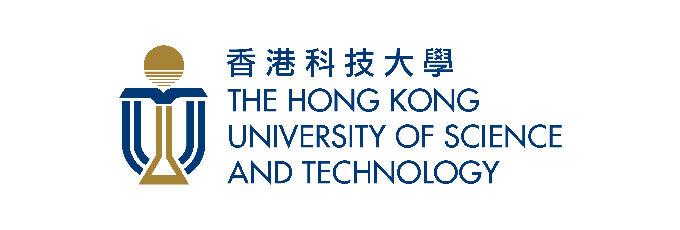Located in Clear Water Bay, Hong Kong, is a Department of Electronic and Computer Engineering that offers skills-based, English-medium courses with excellent employability prospects.
As part of the highly-ranked and prestigious Hong Kong University of Science and Technology (HKUST), the Department benefits from the campus ecosystem, a successful breeding ground for innovative global leaders of tomorrow in all fields. It offers a Bachelor of Engineering and three types of Master of Science – Electronic Engineering, IC Design Engineering, Telecommunications – as well as MPhil and PhD in ECE.
For aspiring electronic engineers, it’s hard to find a better place to kickstart a career in the field.
From the get-go, international students here realise how easy it is to live in this city and study at this institution. With English as the medium of instruction on campus and an official language in Hong Kong, there’s no communication barrier to hinder your learning or experience here.
Then there are the strings of accolades the University and Engineering School consistently collect each year in global league tables. In QS World University Rankings, the University has been the top-ranked in Hong Kong nine times in a row, also ranked 18th in the 2019 edition of the World’s Top 500 Universities in Engineering & Technology. In the Times Higher Education World University Rankings 2019, the Engineering School ranked 3rd in Greater China and 23rd by Subject – Engineering and Technology.

Source: HKUST, Department of Electronic and Computer Engineering
Excellence in teaching and world-class research define the electronic engineering students’ time at HKUST. The Department’s goal is to produce well-rounded and technically competent engineers with agile skillsets that transcend the changing demands of industry.
“Our curriculum enables students to master fundamental and frontier knowledge in core areas such as biomedical engineering, control and robotic systems, integrated circuits and systems, signal, information and multimedia processing, solid state electronics and photonics, wireless communication, and networking,” said Department Head, Professor Bert Shi.
This is complemented by the Department’s research focus on five multi-disciplinary themes: robotics and autonomous systems, display and sensors everywhere, big data systems, ecotronics and green information and communication technologies, and bio-systems and bio-information technologies.
Postgraduate students will work with highly-respected and recognised figures in the field. The majority of faculty members in the department are editors in major journals and have chaired major conferences in their research fields. Many faculty members are IEEE fellows.
It’s this potent combination of English as the medium of instruction, an impressive track record in research along with progressive pedagogy that puts the Department’s graduates in a prime position when they enter the job market.

Source: HKUST, Department of Electronic and Computer Engineering
HKUST: Where career opportunities abound
As we head into the Fourth Industrial Revolution, electronics will be pivotal to progression. With the many crises that urgently need solutions, from the climate crisis to mass migration and inequality, it’s clear how in-demand electrical engineers are and will continue to be.
In the UK, a 2015 report by EngineeringUK found a current annual shortfall of 55,000 engineers, a “massive shortage of skills” needed to power its economy forward. Germany reported 12,070 vacancies for electrical engineers in 2014 alone, according to Tina Lackmann, a consultant with the Association of German Engineers (VDI).
Similarly, as developing Southeast Asian countries power into the future, more roads, national power grids and internet connectivity will need to be built and led by an army of engineers.
A degree from HKUST perfectly fits the demand of such a global job market. History shows that HKUST electronic engineers are going places and some have successfully launched well-known start-ups. A large majority of its MSc graduates in Electronic Engineering, IC Design Engineering and Telecommunications enter the engineering field, with 12 percent joining System Analysis/Computer Programming and another five percent in Administration/Management. Meanwhile, MPhil and PhD graduates have gone on to fields such as Data Science, Data Analytics, Finance & Commerce, Manufacturing & Service Industries, Technical Support, IC Design and more.

Source: HKUST, Department of Electronic and Computer Engineering
MSc alumni have landed positions in a wide range of organisations, including big names such as AliBaba, China Telecom, HP, Huawei, IBM, Lenovo, Merrill Lynch, Schneider Electric and Telstra.
The list of illustrious organisations MPhil and PhD alumni are joining now include Googoltech, ASTRI, Xiamen San’an Integrated Circuit Co., Ltd., NESCOM, Samsung, DJI, Amazon and Baidu, as well as elite universities such as Beijing University of Chemical Technology, Nanyang Technological University, University of California, Boston University, University College London and MIT.
Making these things possible is the industrial experience component embedded in the Department’s courses. Here, students are encouraged to explore different opportunities to get a head start on career development and strive for excellence in the real world. With its proximity to China, a country on the cusp of global technological dominance, students can easily access practical opportunities in the many venture capitals and startups located in the country.
Lin Zhuobin, an MSc Electronic Engineering student from Mainland China, said: “In addition to taking the high-quality and practical courses offered by the world top class professors, I also got the opportunity to do research in a technology company in my spare time. It really enhanced my ability to discover and solve problems in the real-world industry. Thank you, UST.”
Follow HKUST on Facebook, YouTube, WeChat, Instagram and LinkedIn
Liked this? Then you’ll love these…
Electronic & electrical engineering: APAC’s spark of innovation
Why Asia is the top choice for your postgraduate engineering study











